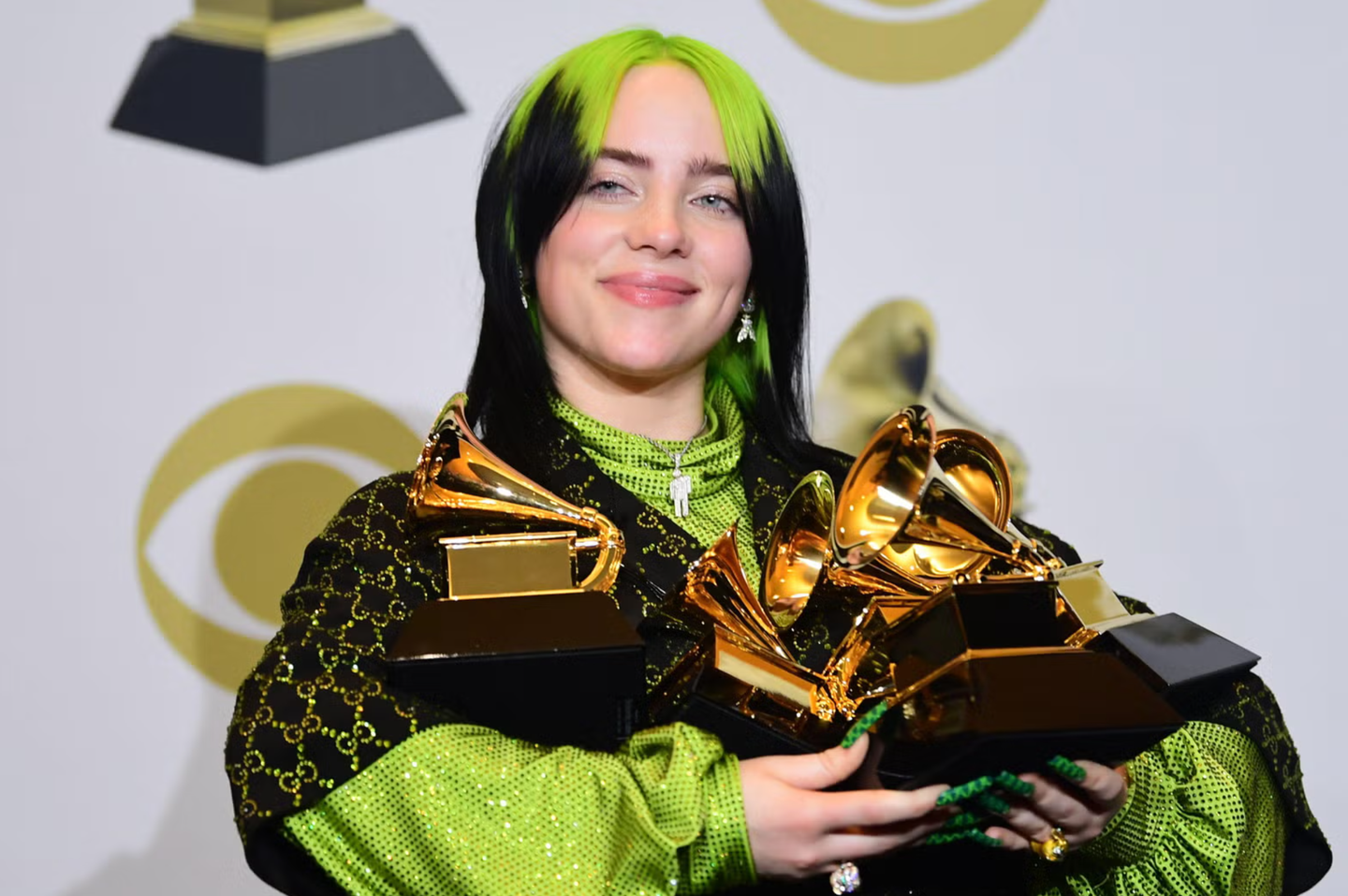New AI predicts Grammy winners and highlights common traits
Researchers have created an algorithm that takes into account a song’s traits, such as its lyrics, along with other information to identify the traits of Grammy winners.

Billie Eilish. The results showed that the model accurately included all nine winning songs across the three categories. (CREDIT: Frederic J. Brown/Getty Images)
Whether it’s the Oscars, the Tonys, or the Grammys, you see predictions each year about which actor, film, musical, or song will win these coveted awards. Experts base their forecasts on what impresses the voters. “Grammy voters love to give Record of the Year to a carefully crafted throwback jam,” the Los Angeles Times wrote ahead of this year’s Grammy Awards.
A team of researchers at New York University has created an algorithm that takes into account various song traits, such as lyrics, and other information, including Billboard rankings, to highlight what makes a song successful. This algorithm specifically analyzed songs that won Song of the Year, Record of the Year, and Rap Song of the Year in 2021, 2022, and 2023. Unlike previous methods, this one not only makes predictions but also identifies the traits of Grammy winners.
“Spotting award-winning art is surely a subjective process and is complicated by the secrecy surrounding voters’ decisions,” says Anasse Bari, a clinical associate professor at NYU’s Courant Institute of Mathematical Science and the senior author of the study published on IEEE Xplore. “However, by taking into account what we know about the songs themselves—from their make-up to their popularity—we can pinpoint those likely to be celebrated.
“This AI tool could help identify emerging artists and trends by uncovering music that is likely to be popular and might otherwise go unnoticed.”
In constructing the AI tool, the researchers created a dataset of nominees from 2004 to 2020 across three award categories: Song of the Year, Record of the Year, and Rap Song of the Year, totaling nearly 250 songs. They then combined a range of variables and trained AI algorithms to learn from this historical data, which included Billboard rankings and Google search volume.
Related Stories
The algorithm also considered a song’s musical characteristics using Spotify data, including:
- Acousticness: Whether the track is acoustic
- Danceability: How suitable a track is for dancing
- Energy: A perceptual measure of intensity and activity
- Instrumentalness: A measure of the lack of vocals in a track
- Speechiness: The presence of spoken words in a track
Finally, the AI tool included a song’s lyrics, using Natural Language Processing algorithms to capture words and the sentiments they conveyed. The calculations revealed vocabulary diversity, emotional tone (e.g., happy, sad, angry), and even profane language.
The researchers tested if the algorithm could generate a list of likely winners by identifying the top three candidates from all the nominees for Song of the Year, Record of the Year, and Rap Song of the Year for each year of the studied period (2021-2023), totaling 27 songs from approximately 75 nominees.
The results showed that the model accurately included all nine winning songs across the three categories in its top three list. These included Billie Eilish’s “everything i wanted” (2021 Record of the Year), Silk Sonic’s “Leave the Door Open” (2022 Song of the Year), and Kendrick Lamar’s “The Heart Part 5” (2023 Rap Song of the Year).
Interestingly, the model’s predictions sometimes differed from betting sites. For example, Bonnie Raitt’s “Just Like That,” which the model placed in its top three for 2023 Song of the Year, was seen as one of the least likely to win by gambling platforms. Similarly, H.E.R.’s Grammy-winning “I Can’t Breathe,” placed in the model’s top three for 2021 Song of the Year, was viewed as a long shot by betting sites.
Predictive features varied among categories. For Song of the Year, the most predictive features included energy, acousticness, and peak Billboard position. For Record of the Year, speechiness, profanity, and acousticness were most predictive. For Rap Song of the Year, vocabulary diversity, the number of words, and the happiness score were key.
While the authors caution that the algorithm isn’t a precise prediction tool, it can highlight wide-ranging attributes associated with successful songs.
“Our findings highlight the importance of considering multiple factors, such as popularity and music-specific features, when predicting the winners of music awards,” says Bari, who leads the Courant Institute’s Predictive Analytics and AI Research Lab. “More broadly, the work shows the potential of using machine learning and data-driven techniques to gain insights into the factors that contribute to a song’s success.”
Note: Materials provided above by The Brighter Side of News. Content may be edited for style and length.
Like these kind of feel good stories? Get The Brighter Side of News' newsletter.
Rebecca Shavit
Science & Technology Journalist | Innovation Storyteller
Based in Los Angeles, Rebecca Shavit is a dedicated science and technology journalist who writes for The Brighter Side of News, an online publication committed to highlighting positive and transformative stories from around the world. With a passion for uncovering groundbreaking discoveries and innovations, she brings to light the scientific advancements shaping a better future. Her reporting spans a wide range of topics, from cutting-edge medical breakthroughs and artificial intelligence to green technology and space exploration. With a keen ability to translate complex concepts into engaging and accessible stories, she makes science and innovation relatable to a broad audience.



